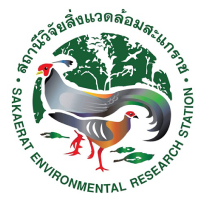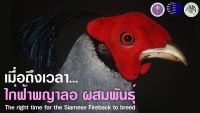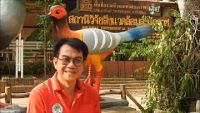Keywords :
Macaca leonina,
Habitat degradation,
Behavioral flexibility,
Habituation process,
Ranging patterns,
Foraging strategies,
Sleeping site selection,
Seed shadows,
Forest regeneration,
Large seeds,
Thailand,
Hidden Markov Models
บทคัดย่อ :
Southeast Asia experiences exceptionally high anthropogenic pressure, due to rapid human population growth. The resulting primary tropical forest loss and conversion to agricultural lands, plantations, and infrastructures, are the driving forces leading to a massive tropical biodiversity crisis. The last remaining old-growth forests have been converted into archipelagos of forest fragments, rapidly becoming degraded. Animal and plant populations are directly threatened by degradation of forest structure, as well as distribution, quality and availability of forest resources, which ultimately modify overall ecosystem functionalities. One key feature is the extirpation of many large-bodied frugivores, the first affected by habitat degradation with a reduced fruit availability and an increased hunting pressure. Primates are particularly vulnerable to these threats, and nearly 84% of all Southeast Asian primate species are currently threatened with extinction. Only a few flexible and generalist species, such as macaques, are able to survive in human-modified landscapes. However, the way they respond to habitat degradation is not well understood yet, especially when it comes to skittish species. Since they are among the major seed-dispersal agents and play crucial roles in forest regeneration and maintenance, primates disappearance could result in detrimental long-term effect on tropical forest biodiversity. The omnivorous and opportunist northern pigtailed macaque (Macaca leonina) is an effective large-seed disperser, contributing to the tropical rainforest succession. However, very little is known about its ecology and behavioral response to habitat degradation. In order to understand how macaques adapt their movement ecology, ranging patterns, sleeping site selection, diet and foraging strategies under conditions of degradation, we studied the species in a degraded forest fragment within the old-growth Acacia and Eucalyptus plantations of the Sakaerat Biosphere Reserve (Sakaerat, hereafter), Northeastern Thailand. We concomitantly studied macaques generated seed shadow (i.e. the seed deposition pattern of a plant population) and their role as seed dispersers for potential forest regeneration. To do so, we followed a large wild-feeding troop of northern pigtailed macaques inhabiting Sakaerat for a 20-month period and collected eco-ethological data in regards to resource availability.
We first habituated the troop of macaques to the observer s presence and analyzed the habituation process over time. Based on the number of encounters, contact duration with the studied troop, and behavioral responses to the observer, we brought statistical evidences of the habituation progress over five stages: early, minimal, partial, advanced, and full. The complete habituation process took nearly thirteen months. Reduced native fruit availability in this degraded forest fragment, macaques limited experience of human contact, and their fission-fusion social dynamics, may explain the lengthiness of the
process.
Second, we investigated sleeping site selection patterns of northern pigtailed macaques over a period of 14 months by testing the hypotheses of random selection, predation avoidance, and food proximity. We identified a total of 107 sleeping sites with a low rate of reuse (N = 15 reused sleeping sites). Macaques sleeping sites were characterized by a low
availability of large and tall trees and their selection pattern was not random: they slept more often in familiar areas, with a greater number of stems and a higher canopy height. These sleeping site characteristics were likely selected as an anti-predator strategy; however, food proximity also played a key role in sleeping site selection. Macaques often slept within or close to a feeding site, and selected their sleeping sites following food distribution.
Third, we documented movement, ranging, and foraging patterns of northern pigtailed macaques based on 14 months of observation, and we used Hidden Markov Models (HMM) and Characteristic Hull Polygons to analyze these patterns
เอกสารอ้างอิง :
Gazagne, E. (2020d). Behavioral flexibility and ecological impact of opportunist northern pigtailed macaques (Macaca leonina) in a degraded environment of Thailand: Ranging pattern, foraging strategies and seed dispersal (Doctoral dissertation, Universite de Liege,



